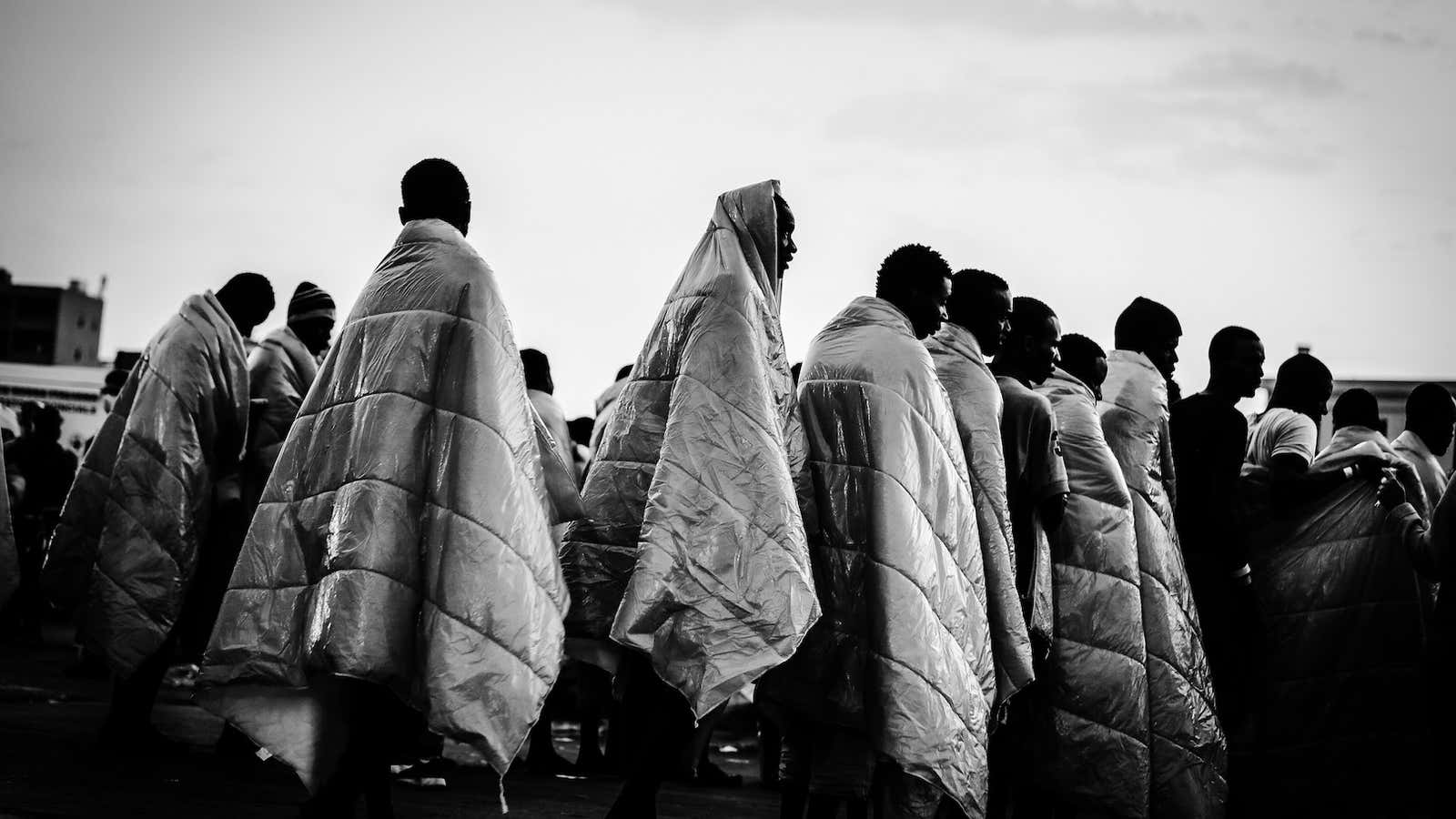At least 1,000 refugees and migrants died this weekend in the Mediterranean while trying to reach Europe from Africa. Several hundreds more were saved last week, some of them miraculously.
This tragedy is no less devastating for being familiar. For years now, good weather has brought deaths at sea. Hundreds of thousands of people fill up old trawlers and rubber boats, often after walking across deserts or being kept in smugglers’ cages for days. They know from the start that they may not survive.
Each time a tragedy strikes, European politicians call for stronger measures against human traffickers and smugglers. But the inhumane smugglers are not ultimately responsible for the deaths in the Mediterranean. It is the privileged countries of Europe, and arguably the world, that are to blame.
There is no doubt that smugglers are merciless. Sometimes they give the migrants rubber boats so old that they don’t even inflate properly. Passengers have to hold up the edges of the boat so they don’t take on too much water and sink. Other times, the vessels’ tanks leak, and the mixture of fuel and water burns the skin of passengers, leaving permanent marks. Some die from suffocation or dehydration in the bottoms of the boats. For many, the journey is the first time they will see the sea—and the last.
Yet refugees and migrants from sub-Saharan countries, Maghreb and the Middle East are only dying in the Mediterranean because we have given them no alternative. Politicians call for smugglers to receive harsh punishments when its regulations are what keeps them in business—it’s unacceptable hypocrisy.
Europe waits for migrants to land at its doorstep before they can apply for visas or permits. So it’s inevitable that desperate people will spend thousands of dollars to die on one of those boats: give them the chance of getting on a regular flight, or a safe passage of any kind, and they will take it.
It’s not smugglers’ unscrupulous dealings that kill refugees and migrants; it is our lack of mercy, our myopic refusal to revise immigration rules.
“Everyone has the right to leave any country, including his own,” reads the Universal Declaration of Human Rights. Migration, not just asylum, is a human right. So far we’ve done a decent job of granting this right to the world’s rich, who also happen, with few exceptions, to be white.
But for everyone else, this right does not seem to exist. Nor does there appear to be any real will to fight for its affirmation. Rather, the rich world’s energies are focused on attempting to contain, manage and curb such right. This is true not only of the hate-filled and xenophobic: Even those who consider themselves emphatic and progressive tend to administer the right to live in another country in stingy drops. Most agree, for instance, that refugees have more rights than migrants, essentially insisting that fleeing extreme poverty isn’t as worthy of compassion as running away from war, or violent threats.
But even then, why do we demand that refugees risk death in order to be found deserving of protection? What is stopping us from ensuring that the people who are entitled to our help can have a chance to get it while they are still alive? There are serious humanitarian cases to be made about who should be allowed to stay, and how. That is the crisis we should deal with. Under the current system, everyone loses: the migrants, the countries that spend millions of dollars on search and rescue operations that can never be enough, and humanity as a whole.
Until we address the root causes of these tragedies (our immigration system, not the smugglers), we’re not just letting thousands of people die in the Mediterranean—we are making them, and none of us can pretend we didn’t see their suffering.
Yet we continue to do nothing, refusing to take the blame that is ultimately ours. As we have done throughout the darkest pages of our history, we’re closing our eyes and letting it happen.




